Who is the Church Looking For?
If you’ve ever thought about becoming a priest, it’s possible your very next thought was, “I’m not worthy to be a priest. They wouldn’t want me.” Truth is, none of us is worthy of being a priest. But the Lord makes us worthy. Humility is important, and if God is calling you He will give you an abundance of grace to fulfill the call.
As you discern who God is calling you to be, it is helpful to spend time in prayer, being quiet with the Lord, and talking with others about your vocation.

Spiritual Formation
- a well catechized person;
- prays daily;
- belongs to a parish;
- participates in the Sunday Eucharist;
- regularly participates in the Sacrament of Penance;
- drawn to explore and deepen his spiritual life and share it with others.
Intellectual Formation
- proven capacities for critical thinking;
- an ability to understand both abstract and practical questions;
- capacity to understand other persons and to communicate with them in both oral and written form.
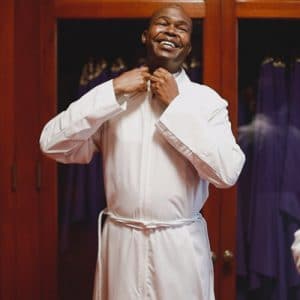
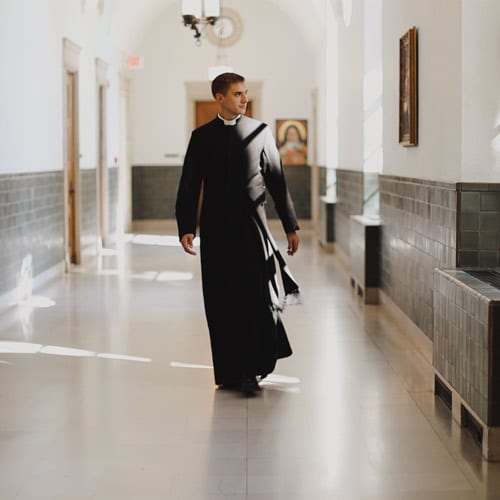
Human Formation
- not only an absence of serious pathology but also a proven capacity to function competently in ordinary human situations without need to do extensive therapeutic or remedial work to be fully functioning;
- a psycho-sexual maturity commensurate with chronological age;
- a genuine empathy that enables the applicant to connect well and personally with others;
- a capacity for growth or conversion
- a deep desire to be a man for others in the likeness of Christ
Pastoral Formation
- having a fundamental sense of the Church’s mission;
- a generous willingness and enthusiasm to promote the Church’s mission;
- knowledge of how the ordained priesthood contributes to the Church’s mission;
- having a sensitivity to the needs of others and a desire to respond to them;
- having a willingness to initiate action and assume a position of leadership for the good of individuals and communities.
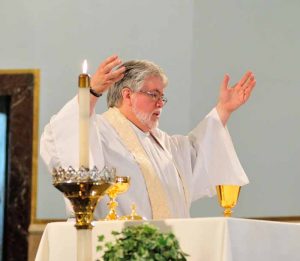
Right Intention
The candidates’ intention to pursue preparation for priestly ordination and ministry ought to correspond to the Church’s understanding.
More Questions?
“Young people, have you ever thought of committing your existence totally to Christ? Do you think there can be anything greater than to bring Jesus to people and people to Jesus?”
— Pope St. John Paul II
Discernment Resources
Frequently Asked Questions
What If I Don't Feel Worthy?
Who do I talk To?
If you are feeling called to the priesthood, you should talk to your pastor or other priest that you know. Then call your vocation director. It also would be wise to seek out and regularly consult with a spiritual director.
I PRAY TO GOD FOR DIRECTION BUT DON'T SEEM TO GET HELP.
God doesn’t usually use thunder and lightning when answering prayers. The Lord answers in gentle, quite ways, so first, pray for the love of God to be in your heart. Pray for the grace of holiness. Invoke the intercession of our Blessed Mother. Be patient.
Additional FAQS
What if I'm worried about telling people I'm thinking about the Priesthood?
Discerning God’s plan for one’s life is a deeply personal interaction between God and the individual. During the early days of discernment, those involved often keep their thoughts and issues to themselves as they pray and think. As things progress, there typically comes a time when the individual will want to share their feelings, regarding vocation, with a close friend or family member. Such a “revealing” moment can bring both anxiety and excitement. If possible, seek out the thoughts of someone you trust, who has wisdom gained from experience and who holds genuine high regard for each of the vocational options before you. Seek guidance from a respected priest or religious member of your parish. It is wise to seek a spiritual director. As described in the practical suggestions section, a spiritual director should be selected with great care. Pray fervently to the Holy Spirit to guide you to the best director possible and find out as much as you can about the spiritual maturity of potential directors. Seek someone who is deeply prayerful, loves the Church, loves their own vocation and has a mature understanding of the struggles involved in moving closer to God.
As for what words to use, pray to the Holy Spirit for guidance and then trust that the words will come. The question of when is a tough one. Again, pray. When the process feels like it is not advancing in any direction, perhaps that is when to bring it to a spiritual director.
What if you get stage fright in front of audiences?
Everyone feels jitters at first, but saying Mass and preaching a homily become less intimidating the more that you do them. Overtime your parish becomes your family and it feels natural administering the Lord to people you care deeply for.
How much will it cost to go to the seminary?
For guys going to Mount Saint Mary’s Seminary (the major seminary here in the Archdiocese of Cincinnati), there is no out of pocket expense. Room, board and tuition are provided for by the great generosity of the people of the Archdiocese of the Cincinnati. However, seminarians are asked to sign a promissory note of $2500.00 per year (as of 2015). If they do not become ordained, they are asked to pay back the notes. Additionally, while at Mount Saint Mary’s Seminary, you receive $2000.00 per year for personal expenses and $1000.00 a year to help you with your book bill.
As of 2016, for guys at the college seminary, the Archdiocese covers the cost of room, board and formation fees and offers each student a $5000 tuition grant per semester. The seminarian is responsible for the remaining cost of tuition (which can be covered by additional grants, scholarships or student loans the student is eligible for and receives).
What do I do if I have previous student loans that are not fully paid off yet?
The Archdiocese, while it provides for much of your training as a seminarian, cannot offer assistance in paying off previous college loans. However, many loans can be deferred, some without accruing extra interest, until the time you finish seminary training and are ordained a priest, at which time you receive a salary and can pay off your loans.
Will I need savings?
In the seminary, during the academic year, you are not allowed to work outside of the seminary. You may have jobs on campus that provide some income and college seminarians may also work in the summertime. So, it never hurts to have a little extra cash of your own from prior savings, but it is not necessary.
Can I get student loans?
If you are considering college seminary, and your grants and scholarships do not cover the cost of college seminary, you may want to consider applying for a student loan. If, after exploring all these options, the seminarian still finds himself unable to cover the cost of tuition, talk to the Vocation Director about other options.
Where will I live during seminary training?
For most of seminary training, you live at the seminary. It is where you have your classes, where you study and where you eat and sleep. For guys in the theology program, they live in a parish during their internship year. In the summers, men are encouraged to live in parishes, if possible. College seminarians may want to find summer employment to help cover tuition costs.
What are the required courses at the Seminary?
You will complete 37 academic courses (100 semester credit hours) in Scripture, Systematic Theology, Moral/Spiritual Theology, Church History, Liturgy, Music, Sacramental Theology, Canon Law, Catechesis, Pastoral Counseling, Pastoral Leadership, Homiletics, and more. You will also complete an additional 6 courses as part of the USCCB Program of Priestly Formation (16 semester hours) with 4 classes in Biblical Studies, 1 course in Moral/Spiritual Theology, and 1 course in Church History.
What education background is needed?
To enter major seminary, a man must either graduate with a bachelor’s degree from a college seminary or must complete the pre-theology program offered at Mount St. Mary’s Seminary of the West. The Seminary evaluates the needs of such students case-by-case. Fulfilling these pre-requisites can take from 1 to 2 years. Once the pre-requisites are done, the seminarian begins the formal ‘I Theology’ year at Mount St. Mary’s.
How long does the seminary take?
The short answer is 5 to 9 years. For men beginning college seminary as freshman, the formation process takes 9 years (4 years at the college seminary and another 5 at the major seminary). For others who have a bachelors degree and no Philosophy background, the time at Mount St. Mary’s can be as many as 7 years (2 years of Pre-Theology and 5 in Theology studies). Those who qualify to enter directly into I Theology, the program takes 5 years (4 years of academic formation and 1 year on pastoral internship in the third year of formation).
What are the steps to admittance?
The process typically begins with some conversations with the Vocations Director. Some feel the pull to enter the seminary right away, while others spend more time in this part of discernment. When you make the decision that you would like to enter the seminary, the formal process begins. Naturally, you would then let the Vocations Director of the Archdiocese know you desire to enter the seminary. You will then have a series of meetings with the Vocations Director and will visit the seminary to meet people out there as well. You will go through several in-depth interviews and will write your life history. You will be asked to get recommendation letters from priests, pastors, friends, co-workers, teachers and guidance counselors. You will complete a series of psychological tests. You will fill in a set of academic application forms and supply the vocations office with high school and college transcripts, as well as baptismal and confirmation certificates, college board tests (ACT or SAT) and a medical/physical form. The archdiocese performs a background check and the seminary admissions committee reviews your application and determines if you will be accepted or not.
Can I enter if I didn’t go to a seminary college?
Yes! You may require some “Pre-Theology” courses to fill in any gaps in your college background, but many of our seminarians have come from a variety of previous occupations and directions.
Am I allowed to date while in the seminary?
The seminary is like the engagement period for a couple…you do not date others if you desire to create a true relationship with your intended. Likewise, to truly prepare for and discern the calling to priesthood in the seminary, you should not be dating.
What if I have been sexually intimate in my past, does that mean I can’t be a priest?
No. But, you must now be in the process of embracing chastity. St. Augustine led a very wild life as a young man, but he gave up his unchaste, sinful ways when he decided to live a fully Catholic life.
What if my attraction to women is so strong at times that I fear I wouldn’t be able to remain chaste?
If you ask God, He gives abundant graces to live a chaste life. You of course, must respond to those graces by using them to make chaste choices. As you grow in chastity, as it becomes a habit of your life, you will experience a strengthening, and an ease to being and remaining chaste.
It seems unnatural or weird to me to live your whole life without sex.
Most men and women are called naturally to the married life. So, obviously, living a celibate, chaste life goes beyond the ordinary. This is a calling and a sacrifice but the rewards are great. Many great saints, religious, monks, nuns, and priests over the centuries have lived very fulfilled and happy lives.
Why can’t priests marry?
The level of practical dedication of the Catholic priest requires that he have no attachments that compete with his service to the Church. His commitment to the Church is analogous to marriage. For the priest, standing in the person of Christ (“in persona Christi”), the Church is his bride. Moreover, celibate chastity has a way of unifying and intensifying a priest’s devotion and dedication to the Lord Jesus and His Church. Christ himself presented this discipline by his own chaste, celibate life and by his words “Not all men can receive this saying, but only those to whom it is given. For there are eunuchs who have been so from birth, and there are eunuchs who have been made eunuchs by men, and there are eunuchs who have made themselves eunuchs for the sake of the kingdom of heaven. He who is able to receive this, let him receive it.” (Matthew 19:11-12)
Later, St. Paul would write “I want you to be free from anxieties. The unmarried man is anxious about the affairs of the Lord, how to please the Lord; but the married man is anxious about worldly affairs, how to please his wife, and his interests are divided. And the unmarried woman or girl is anxious about the affairs of the Lord, how to be holy in body and spirit; but the married woman is anxious about worldly affairs, how to please her husband. I say this for your own benefit, not to lay any restraint upon you, but to promote good order and to secure your undivided devotion to the Lord.” (1 Corinthians 7:32-35)
And finally, St. John, in his description of Paradise identifies a special group of celibate holy men standing close to Christ: “Then I looked, and lo, on Mount Zion stood the Lamb, and with him a hundred and forty-four thousand who had his name and his Father’s name written on their foreheads. And I heard a voice from heaven like the sound of many waters and like the sound of loud thunder; the voice I heard was like the sound of harpers playing on their harps, and they sing a new song before the throne and before the four living creatures and before the elders. No one could learn that song except the hundred and forty-four thousand who had been redeemed from the earth. It is these who have not defiled themselves with women for they are chaste; it is these who follow the Lamb wherever he goes; these have been redeemed from mankind as first fruits for God and the Lamb, and in their mouth no lie was found, for they are spotless.” (Revelation 14: 1-5)
For more on this, please read Archbishop Pilarczyk’s article on Celibacy, Pope Paul’s encyclical On Priestly Celibacy , or Pope John Paul II’s exhortation Pastores Dabo Vobis.
Why does the Catholic Church only ordain men to the priesthood?
According to Catholic Church theology, no one has a ‘right’ to be ordained; it is an individual’s response to an invitation by Christ to serve His Church. The Church must also confirm and nurture this call, for no one is a priest just for himself; so the Church has the obligation to define who is eligible for this Sacrament, which must be done in a manner consistent with the Church’s Tradition. Because this teaching went unchallenged for a vast majority of the Church’s life, the teaching was left implicit in the deposit of faith. However, because of recent historical developments, the teaching was concretely defined over the last thirty years.
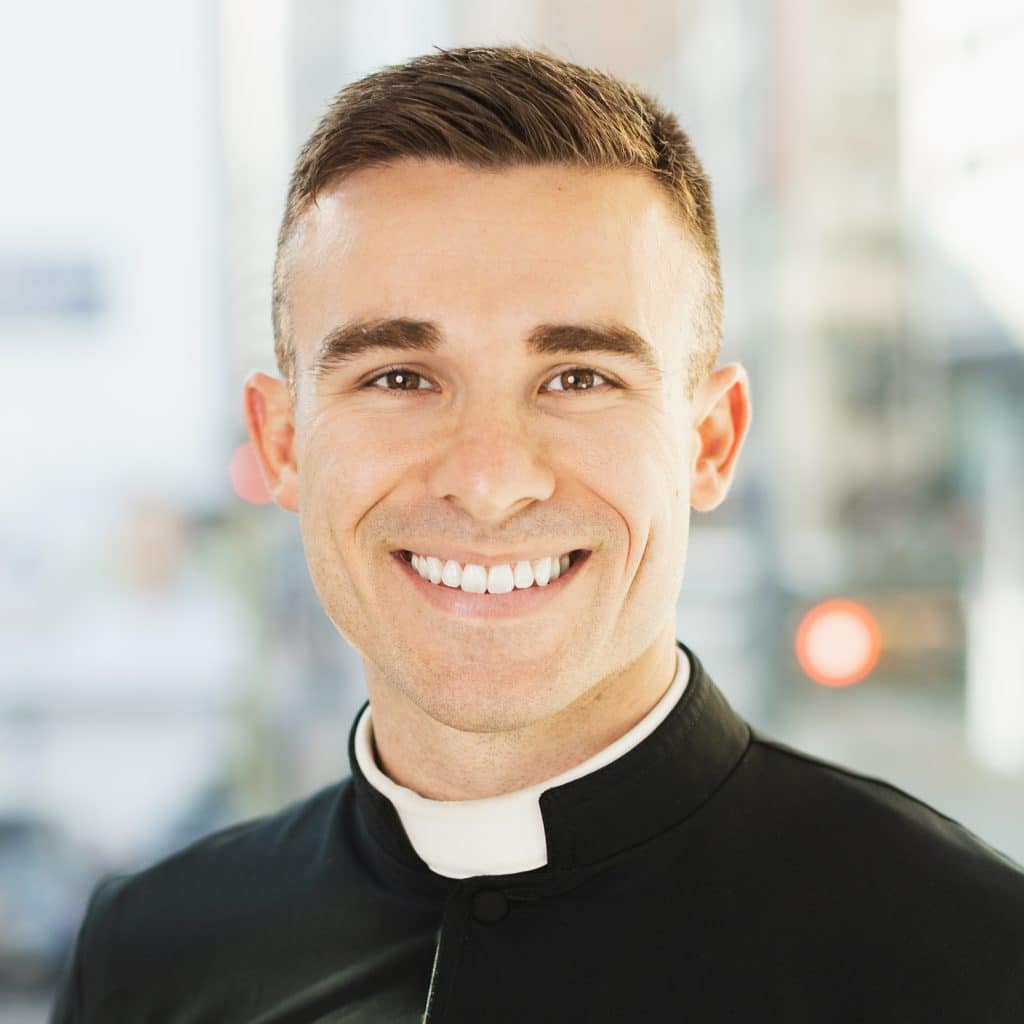
Fr. Michael
Willig
